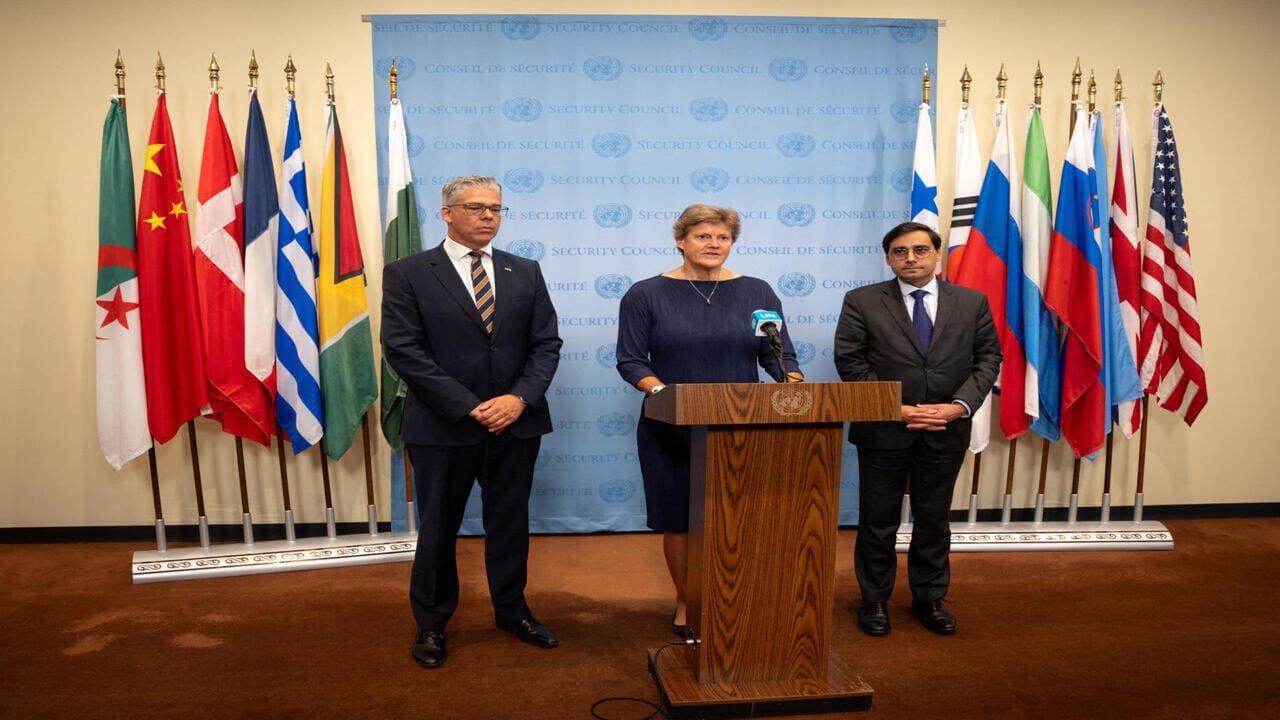
IndependentReport – The United Kingdom, France, and Germany collectively known as the E3 have issued a direct call on Iran to agree to a temporary arrangement that would delay the automatic reimposition of UN sanctions tied to its nuclear program. This proposal was tabled during a closed-door session of the UN Security Council, reflecting Europe’s growing concern over Tehran’s enrichment of uranium and its reduced cooperation with international inspectors.
Under the proposal, the E3 offered a six-month delay to the snapback mechanism, which would otherwise reinstate UN measures first lifted under the 2015 nuclear accord. In return, Iran would be required to fulfill three specific conditions: restore access for UN nuclear inspectors, provide explanations for its stockpile of enriched uranium, and begin direct talks with the United States. According to the E3, these steps are not excessive but essential for rebuilding international trust and buying time for diplomacy.
Iran, however, swiftly rejected the E3’s demands. Ambassador Amir Saeid Iravani described the conditions as unrealistic and unfair, accusing Western nations of undermining the original spirit of the 2015 Joint Comprehensive Plan of Action (JCPOA). Tehran has repeatedly insisted that it seeks only an unconditional extension of UN Security Council Resolution 2231, which formalized the nuclear agreement and provided for a gradual lifting of sanctions.
From Iran’s perspective, the current push by European powers represents political pressure rather than genuine dialogue. Officials in Tehran argue that if the international community wants to sustain diplomacy, it must accept Iran’s right to civilian nuclear development without imposing unilateral restrictions. By rejecting the E3’s proposal, Iran signaled it would rather face the possibility of renewed UN sanctions than agree to conditions it sees as infringing on its sovereignty.
Read More : US Military Concerns Over the Los Angeles Deployment
In parallel, Russia and China have circulated their own draft resolution at the Security Council, calling for a six-month extension of the JCPOA framework without additional requirements. This proposal encourages all sides to return to negotiations but does not explicitly postpone the activation of UN sanctions. Tehran views this approach as more balanced, aligning with its preference for dialogue free from preconditions.
While Moscow and Beijing’s draft has not yet gained full consensus, it highlights the fractures among global powers on how to handle Iran’s nuclear trajectory. The presence of two competing visions Europe’s conditional delay and Russia-China’s unconditional extension underscores how geopolitics now intersects with the technicalities of nuclear diplomacy.
The E3 outlined three major conditions Iran must meet to avoid the immediate return of UN sanctions:
These conditions are design to create transparency, accountability, and a pathway back to structured negotiations. Without them, European diplomats warn, any delay in sanctions would lack credibility.
The debate over delaying UN sanctions reflects how fragile the global consensus on Iran has become. Since Tehran halted its cooperation with the IAEA and escalated uranium enrichment closer to weapons-grade levels, the urgency of the matter has only increased. European officials have set late August as a deadline for action, warning that the snapback mechanism will otherwise proceed automatically.
For Iran, the insistence on unconditional measures demonstrates how little trust remains between Tehran and Western capitals. For the E3, however, the demand for transparency and dialogue is seen as the bare minimum to justify any delay. This growing divide raises the risk of a total collapse of the JCPOA framework, potentially igniting a new round of regional instability.
Also Read : Meta Unveils AI Writing Help: Craft Perfect Messages
The current standoff between Iran and the E3 serves as a reminder that international diplomacy often struggles against the weight of political mistrust and competing national interests. The keyword of the debate UN sanctions has become more than a legal mechanism; it is a symbol of the fragile balance between pressure and dialogue.
Whether or not Tehran concedes to the E3’s conditions, the episode shows that time is running out. Without genuine compromise, the world risks sliding further away from cooperative security arrangements and closer toward confrontation. The challenge now lies in turning rigid demands into constructive engagement, before diplomacy gives way to escalation.